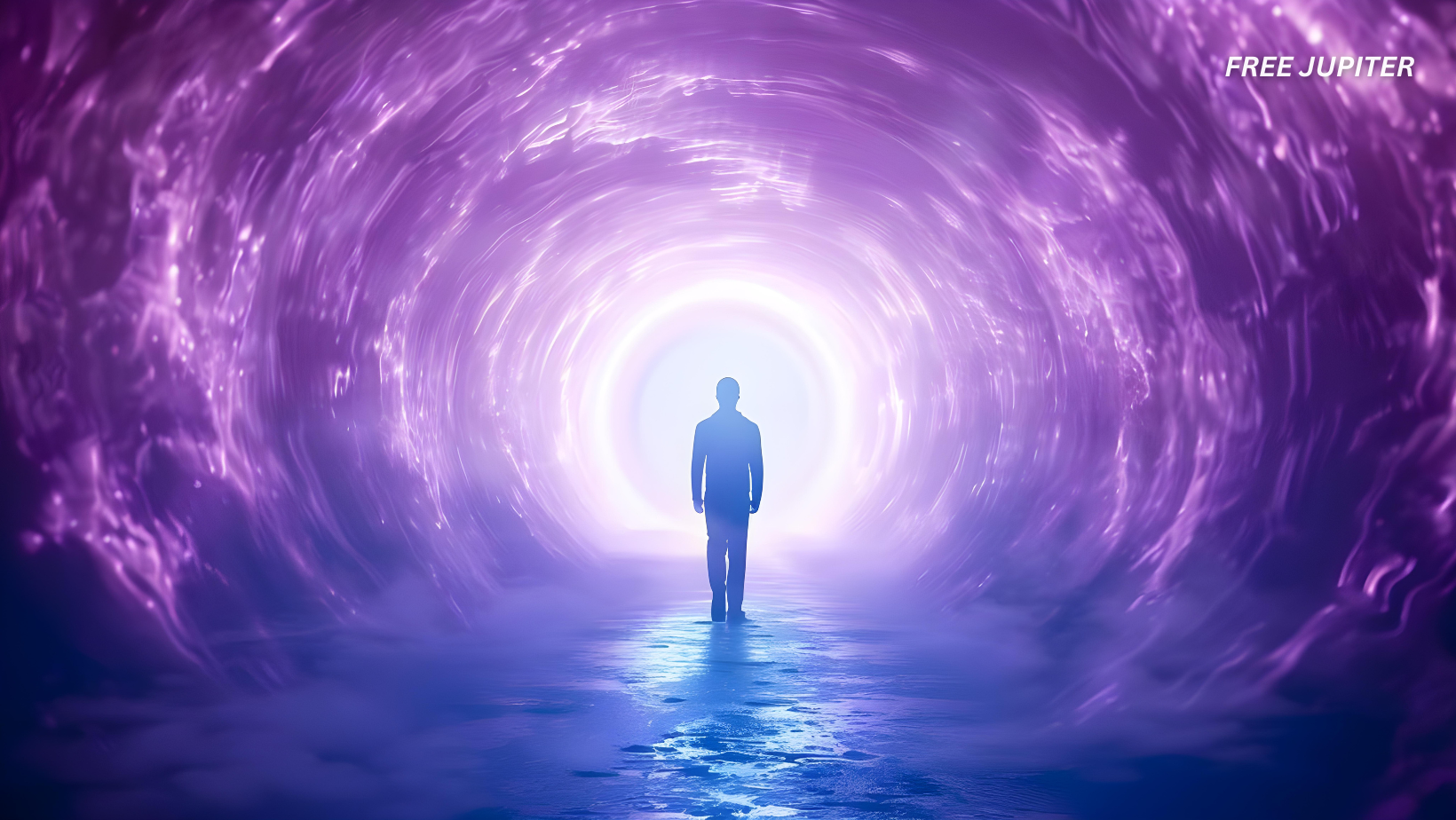Friendly Note: FreeJupiter.com shares general info for curious minds 🌟 Please fact-check all claims—and always check health matters with a professional 💙
The nature of consciousness has puzzled thinkers for centuries, occupying a unique space at the crossroads of philosophy, neuroscience, and psychology. Traditionally, scientists have viewed consciousness as an emergent property of brain activity – a complex interplay of neurons firing in intricate patterns that give rise to our thoughts, feelings, and self-awareness. This perspective, while grounded in decades of empirical research, explains many cognitive functions such as memory, perception, and decision-making. Yet, it falls short of addressing a deeper mystery: why do these physical processes produce the vivid, subjective experience we call consciousness? This question, famously dubbed the “hard problem” by philosopher David Chalmers, remains one of the most profound and elusive challenges in contemporary science.
Adding to the intrigue are phenomena known as out-of-body experiences (OBEs), where individuals report a sensation of their consciousness detaching from their physical body and observing it from an external vantage point. These experiences often occur during moments of intense emotion, trauma, or even deep relaxation, and they defy easy explanation within the conventional brain-centered view of consciousness. While some dismiss OBEs as mere illusions or neurological glitches, others argue that they might offer a rare glimpse into a form of consciousness that transcends the physical confines of the brain. This controversial idea-that consciousness could be non-local or exist independently of the brain-has sparked both fascination and skepticism among researchers.
Recently, a study published in Frontiers in Psychology has brought renewed attention to OBEs by emphasizing the importance of taking firsthand accounts seriously. The researchers argue that these subjective experiences should be described as they present themselves, without prematurely filtering them through existing scientific assumptions. By doing so, they hope to deepen our understanding of consciousness and provide validation for those who undergo these unusual episodes. This approach challenges the scientific community to broaden its perspective and consider that consciousness might be far more complex-and perhaps less tethered to the brain-than previously thought.
The Enigma of Consciousness and the Brain
For decades, the dominant scientific view has held that consciousness arises entirely from brain activity. The brain, with its intricate network of neurons and synapses, processes sensory information, stores memories, and generates our subjective experience of the world. Yet, this framework primarily addresses how the brain manages information rather than why or how these processes translate into conscious experience the so-called “hard problem” of consciousness. This term, coined by philosopher David Chalmers, points to the profound mystery of why physical brain functions give rise to the rich inner world of awareness.
This conundrum has spurred numerous theories, some conventional and others more speculative. Among the latter is the provocative idea of non-local consciousness – the notion that awareness might not be confined strictly within the brain’s physical boundaries. While this concept may seem counterintuitive, especially given our everyday experience of consciousness as an internal phenomenon, it has gained some attention through studies of out-of-body experiences.
Read more: When Someone Who Has Passed Visits You in a Dream—Here’s What It Could Symbolize
Out-of-Body Experiences: A Window into Non-Local Consciousness?
Out-of-body experiences are broadly characterized by a sensation of the self existing outside the physical body, often accompanied by the perception of observing one’s own body from an external vantage point. These episodes can occur spontaneously during moments of extreme stress or calm, near-death situations, or even be induced experimentally.
A recent study published in Frontiers in Psychology explored the subjective accounts of individuals who have undergone OBEs. The researchers interviewed ten participants who described their experiences in terms evocative of “another plane of existence” or “universal consciousness.” Such descriptions resonate with the theoretical framework of non-local consciousness, suggesting that these experiences might reflect something beyond mere brain activity.
The authors emphasize the importance of documenting OBEs as they are experienced, without prematurely filtering them through existing theoretical biases or external explanations. They argue this approach is vital not only for advancing our understanding of consciousness but also for helping individuals who undergo these experiences to feel validated rather than isolated or misunderstood.
Neuroscientific Perspectives on OBEs
While the subjective reports are compelling, many neuroscientists seek explanations grounded in brain function. A notable study conducted at Stanford University in 2023 examined nine epilepsy patients who had electrodes implanted in their brains for clinical reasons. By delivering electrical stimulation to specific brain regions, researchers observed that stimulating the anterior precuneus-a brain area linked to processing bodily sensations – could induce experiences resembling OBEs.
Participants reported distortions in spatial perception and a shift in the perceived location of their consciousness. These findings align with earlier research suggesting that OBEs might result from a mismatch between vestibular (balance-related) and visual information, leading to a temporary disconnection between the brain’s representation of the body and the external environment.
Similarly, Belgian researchers studying a patient with an implanted electrode for tinnitus treatment observed increased activity in the brain regions where the angular gyrus and supramarginal gyrus meet during induced OBEs. These areas are known to be involved in self-awareness and spatial orientation. The patient reported feeling disembodied about half a meter behind and to the left of his physical body during these episodes. However, he did not experience visualizing himself from outside his body, and the sensations lasted only seconds.
These neuroscientific insights suggest that OBEs may arise from specific brain mechanisms related to sensory integration and self-location, rather than indicating that consciousness literally leaves the body.
Read more: Death Doesn’t Really Exist And May Be An Illusion, According To Quantum Physics
Challenges and Future Directions
Despite these advances, the study of OBEs remains hampered by small sample sizes and the subjective nature of the experiences. The recent qualitative study of ten individuals offers valuable firsthand perspectives but cannot alone provide definitive answers. Likewise, brain stimulation studies, while illuminating, capture only a fragment of the complex phenomena.
To unravel the mystery of consciousness and its relationship to the body, a multidisciplinary approach is essential. This includes gathering rich qualitative data about OBEs, refining neuroimaging techniques, and developing theoretical models that accommodate both the biological and experiential dimensions of consciousness.
Moreover, understanding OBEs better could have practical benefits. Normalizing these experiences for those who have them may alleviate anxiety and stigma, fostering a more open dialogue about the nature of human awareness.
Read more: The First Communication Between Two Humans While Dreaming Has Been Achieved – This Is How It Works
Conclusion
Out-of-body experiences present a fascinating puzzle at the intersection of neuroscience, philosophy, and psychology. While many findings point to brain-based explanations-such as disruptions in sensory processing and spatial orientation-there remains an open question about whether consciousness might, in some sense, extend beyond the physical brain. The recent qualitative study urging scientists to consider the lived experience of OBEs adds an important dimension to this inquiry.
As research continues, the hope is that these enigmatic episodes will help illuminate the profound and elusive nature of consciousness itself, bridging the gap between subjective experience and objective science. For now, OBEs remain a compelling reminder of how much there is yet to discover about the human mind.










